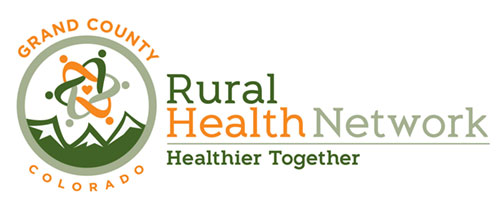Information shared from Grand Country Public Health
https://www.co.grand.co.us/COVID19
Spring Break Safety Tips
What we know about COVID-19 at this point is that the prominent source of spread is from one infected person to someone with little to no immunity to it. In the last year, the virus has shown to be spread best when people are close to each other for prolonged periods of time, especially if masks are not worn by both parties. We saw fewer cases in the summer months but still had spread and outbreaks occurring. We have not reached a point yet where there are enough people with natural or vaccine immunity to achieve reliable herd immunity. The virus will stop spreading when there are no more hosts susceptible to the virus or its variants.
In light of the significant health risks associated with travel, and to continue to mitigate the spread of COVID-19 throughout our community, GCPH strongly recommends that people refrain from traveling and refrain from engaging in activities that may put them at increased risk for contracting COVID-19. Such activities include parties and smaller, indoor gatherings with members of more than one household. However, if you do decide to travel, please do so safely.
Here’s what we recommend for safe travel:
- Do your research. Research what the case rates look like for where you’re going. If they are high, possibly reconsider your destination. When choosing where to go, look for places off the beaten path, away from crowds. You should also research your accommodations.
- Drive, don’t fly (if possible). Airplanes themselves may be clean, but you still have to deal with the airport. There’s still a big risk of exposure when you’re flying. With road trips, on the other hand, you can plan your stops carefully to lessen your exposures.
- Stay in your bubble. As tempting as it is to meet with friends or family you haven’t seen in a year, we’re not out of the danger zone yet.
- Don’t assume vaccination means you can go anywhere. If you’ve already been vaccinated, your risk of having a severe case of COVID-19 is a lot lower. But that doesn’t mean you can’t get it — and there’s no conclusive research yet about whether you might be able to spread the virus to others. New CDC guidelines for fully vaccinated people still recommend avoiding medium or large gatherings and delaying travel.
Ultimately, deciding whether or not to travel should have to do with your risk factors for COVID-19 as well as the risk levels of everyone in your quarantine bubble and your travel bubble. If you live with an elderly, unvaccinated person, for instance, you might not feel comfortable going anywhere. Or you might drive somewhere fairly remote where you won’t interact with anyone, but you should avoid places likely to attract crowds. The decisions that we make as individuals can have an effect on the people around us. So while it may be good for your mental health to get out of the house, it is also important that we are not causing harm to others.
Vaccine Update and a Comparison Table
Today, Governor Polis announced that Colorado will be moving into Phase 1B.4 of vaccine distribution starting March 19th, which includes Coloradans 50 and older and several frontline workers. It is also anticipated that the state will follow federal guidelines to open up vaccine eligibility to everyone on May 1st. Local vaccine providers will do their best to administer vaccines as quickly as possible to all eligible individuals. However, it should be noted that we are still working very hard to get previously authorized populations vaccinated, including individuals over the age of 60 and local grocery employees. Currently, our vaccine supply is not meeting our demand. Therefore, we ask for everyone’s patience in this process until our supply catches up.

